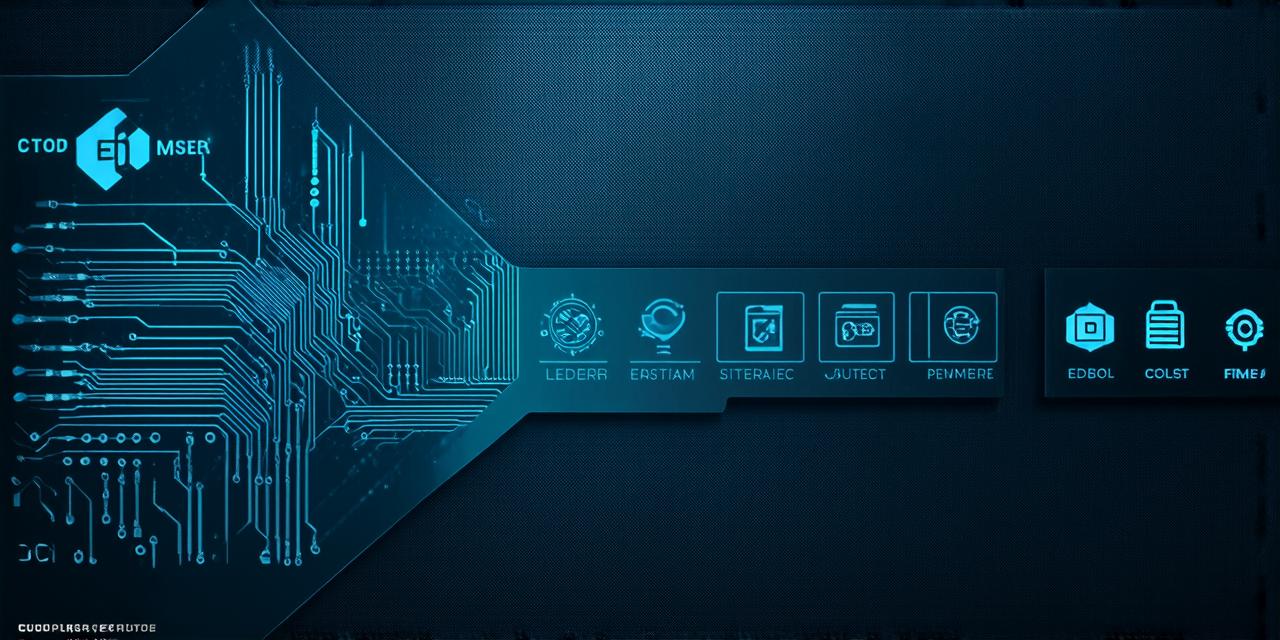
Blockchain technology has been transforming various sectors by introducing a new paradigm of decentralized decision-making and secure transactions. One such innovation is blockchain contracts, which have gained significant traction among businesses worldwide. In this article, we will delve deeper into the concept of blockchain contracts and their transformative potential in the world of business.
A blockchain contract is an agreement that is executed on a blockchain network. It enables parties to transact directly with each other without the need for intermediaries such as lawyers, banks, or brokers. Unlike traditional contracts, which are often paper-based and require intermediaries to enforce them, blockchain contracts are self-executing, meaning that the terms of the agreement are automatically enforced once certain conditions are met.
One of the most significant benefits of blockchain contracts is their transparency. All parties involved in a transaction can access the terms of the agreement on the blockchain network, ensuring that they are fully aware of the obligations and responsibilities under the contract. This feature makes it easier to verify and understand the terms of the agreement, reducing the risk of misunderstandings or disputes.
Another advantage of blockchain contracts is their security. Blockchain technology is renowned for its robust security features, which are designed to prevent unauthorized access, fraud, and hacking. By storing the terms of a contract on a decentralized network, blockchain contracts eliminate the need for intermediaries, reducing the risk of fraud or hacking. Moreover, once the terms of a blockchain contract are written on the blockchain, they cannot be altered or deleted, ensuring that both parties can trust that the agreement will be executed as intended.
Blockchain contracts also offer efficiency as they eliminate the need for intermediaries, which can significantly reduce the time and cost of executing transactions. By automating the execution of contracts, businesses can save time and money on legal fees, escrow services, and other intermediary costs. Furthermore, blockchain contracts enable faster transaction processing, reducing the time required to complete a contract from days or weeks to seconds or minutes.
Real-life examples of blockchain contracts are plentiful, showcasing their transformative potential in various industries. One such example is smart contracts, which are self-executing contracts that automatically execute the terms of an agreement when certain conditions are met. Smart contracts have been used in finance, supply chain management, and real estate, among other industries. For instance, in 2017, the Ethereum network facilitated a smart contract that allowed buyers to purchase homes in Singapore without intermediaries.
Another example of blockchain contracts is decentralized autonomous organizations (DAOs), which are organizations that operate on a decentralized blockchain. DAOs are run by a set of pre-programmed rules and do not require any intermediaries such as board members or executives. A notable example of a DAO is the DAO hack of 2016, which resulted in the loss of over $50 million. However, the incident highlighted the potential of blockchain technology to enable more efficient and transparent decision-making processes.
In conclusion, blockchain contracts are revolutionizing the way businesses operate by enabling secure, transparent, and immutable transactions without the need for intermediaries. They offer numerous benefits such as transparency, security, immutability, and efficiency, making them an attractive option for businesses looking to streamline their operations and reduce costs. As blockchain technology continues to evolve, we can expect more businesses to adopt this innovative approach to contract execution, transforming the way we conduct business across various industries. Therefore, it is crucial for blockchain developers to stay up-to-date with the latest developments in this field and explore the potential of blockchain contracts in their work.



